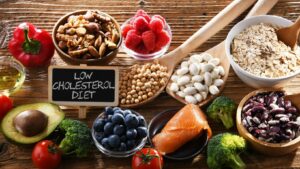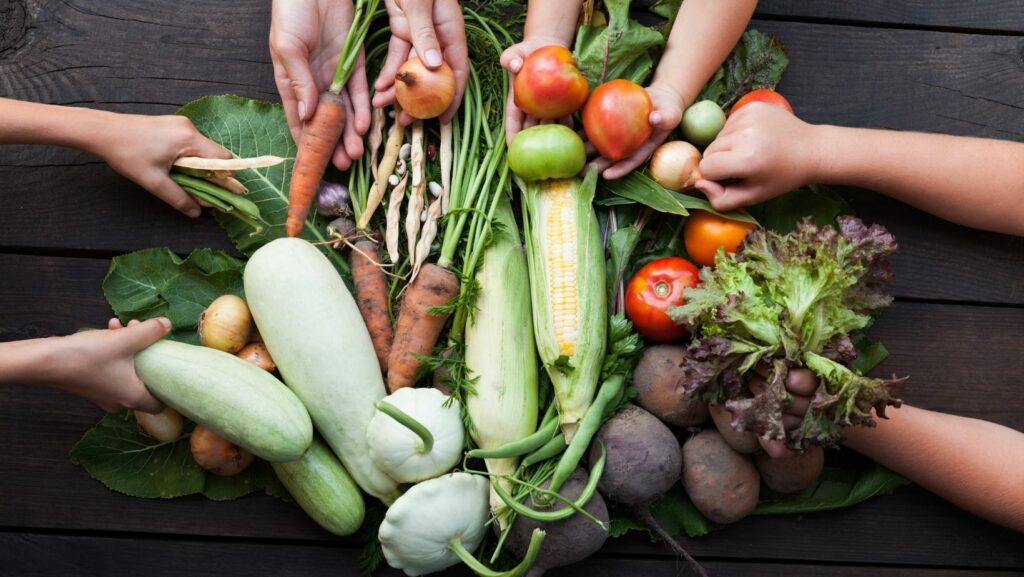 In today’s world, the demand for sustainable food products is on the rise as consumers become more conscious of the environmental impact of their choices. From locally sourced ingredients to eco-friendly packaging, the focus has shifted towards products that not only nourish our bodies but also support the health of the planet. Embracing sustainable food products isn’t just a trend; it’s a commitment to a better future for all. By opting for items that are produced with minimal environmental impact, consumers play a vital role in promoting a healthier ecosystem and supporting ethical practices in the food industry. In this article, we’ll explore the importance of sustainable food products, their benefits, and how they contribute to a more eco-conscious lifestyle. Join us on this journey towards a greener, more sustainable way of nourishing ourselves and the planet.
In today’s world, the demand for sustainable food products is on the rise as consumers become more conscious of the environmental impact of their choices. From locally sourced ingredients to eco-friendly packaging, the focus has shifted towards products that not only nourish our bodies but also support the health of the planet. Embracing sustainable food products isn’t just a trend; it’s a commitment to a better future for all. By opting for items that are produced with minimal environmental impact, consumers play a vital role in promoting a healthier ecosystem and supporting ethical practices in the food industry. In this article, we’ll explore the importance of sustainable food products, their benefits, and how they contribute to a more eco-conscious lifestyle. Join us on this journey towards a greener, more sustainable way of nourishing ourselves and the planet.
Sustainable Food Products
Consumers today are increasingly prioritizing sustainable food products due to their heightened awareness of environmental issues. Opting for sustainable choices isn’t merely a passing fad; it signifies a dedication to a healthier future for both individuals and the planet. Sustainable food products play a crucial role in reducing carbon footprints, preserving biodiversity, and promoting ethical practices in food production. By embracing sustainable alternatives, individuals contribute to a more eco-conscious lifestyle, aligning their values with the broader goal of fostering a greener and more sustainable world for future generations.
Benefits of Choosing Sustainable Food Options
Opting for sustainable food products offers various advantages, encompassing environmental impact and health benefits.
Environmental Impact
- Reducing Carbon Footprint:
Sustainable food options involve practices that emit fewer greenhouse gases, thus aiding in combating climate change. For instance, locally sourced produce diminishes the carbon footprint by minimizing transportation emissions. - Preserving Biodiversity:
By supporting sustainable agriculture, individuals help preserve biodiversity. This method promotes the growth of various crops and protects different species, contributing to a more balanced ecosystem.
Types of Sustainable Food Products
 When it comes to sustainable food products, one prominent category is Organic Produce. Organic produce refers to fruits and vegetables that are grown without synthetic pesticides, fertilizers, or genetically modified organisms (GMOs). By opting for organic produce, consumers support farming methods that promote soil health, reduce pollution, and conserve water resources. Additionally, organic farming practices help maintain biodiversity by avoiding the use of chemicals that can harm beneficial insects and wildlife.
When it comes to sustainable food products, one prominent category is Organic Produce. Organic produce refers to fruits and vegetables that are grown without synthetic pesticides, fertilizers, or genetically modified organisms (GMOs). By opting for organic produce, consumers support farming methods that promote soil health, reduce pollution, and conserve water resources. Additionally, organic farming practices help maintain biodiversity by avoiding the use of chemicals that can harm beneficial insects and wildlife.
Plant-Based Alternatives
Another essential category of sustainable food products is Plant-Based Alternatives. These products offer environmentally friendly substitutes for traditional animal-derived foods. Plant-based alternatives help reduce greenhouse gas emissions, as livestock farming is a significant contributor to climate change. By choosing plant-based options such as plant-based milk, meat, and cheese, individuals contribute to lowering their carbon footprint and supporting sustainable food production practices.
Fair Trade Products
 Fair Trade Products are also key components of sustainable food choices. Fair trade products ensure that farmers and workers receive fair wages and operate under safe working conditions. By selecting fair trade coffee, chocolate, tea, and other goods, consumers advocate for social justice and ethical standards in global supply chains. Fair trade practices empower farmers in developing countries and promote sustainable livelihoods while fostering equitable trade relationships.
Fair Trade Products are also key components of sustainable food choices. Fair trade products ensure that farmers and workers receive fair wages and operate under safe working conditions. By selecting fair trade coffee, chocolate, tea, and other goods, consumers advocate for social justice and ethical standards in global supply chains. Fair trade practices empower farmers in developing countries and promote sustainable livelihoods while fostering equitable trade relationships.
Finding Sustainable Food Products
When searching for sustainable food products, individuals can look for specific certifications that validate the products’ sustainability claims. Certified Organic: products are grown without synthetic pesticides or genetically modified organisms, promoting soil health and biodiversity. Fair Trade: ensures fair wages and safe working conditions for farmers, promoting social justice in the supply chain. Local Sourcing: minimizes transportation emissions and supports local economies. Upcycled Foods: combat food waste by utilizing surplus ingredients. Opting for these certifications and practices aligns consumers with a greener and more sustainable approach to their food choices.

